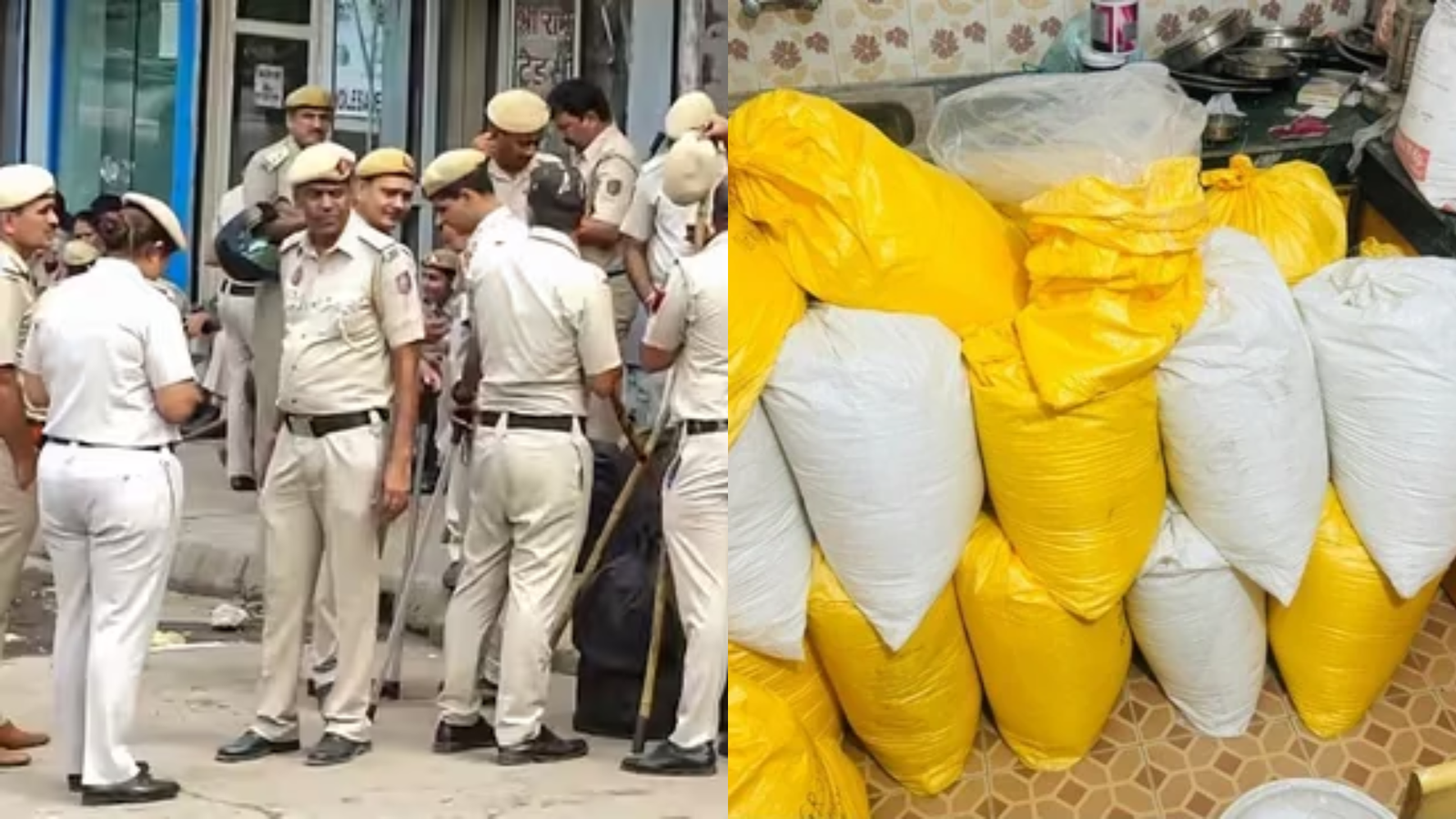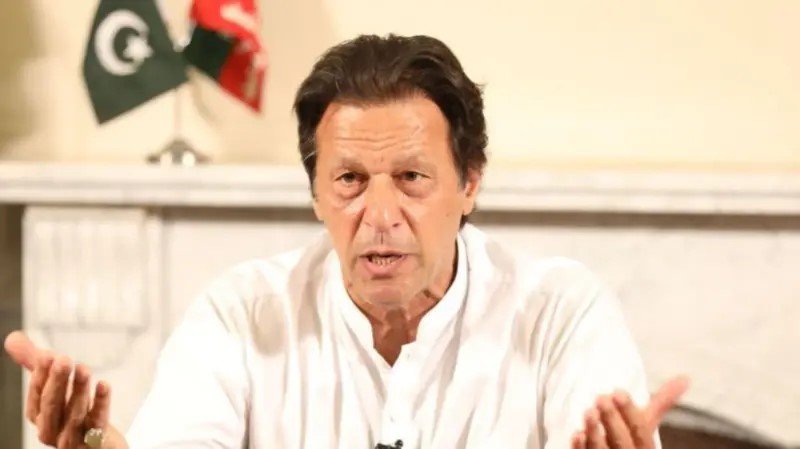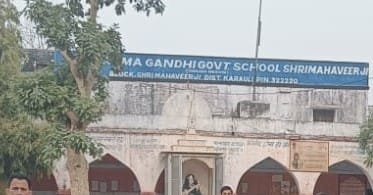Crime and Law Enforcement
Major Drug Bust in Delhi: ₹ 2,000 Crore Cocaine Seized Amidst Growing Concerns

Contents
Overview of the Recent Drug Bust in Delhi
In a significant operation, law enforcement authorities in Delhi have successfully seized a staggering ₹ 2,000 crore worth of cocaine. This massive drug bust is not only alarming due to the enormous quantity of the illegal substance but also because it marks the second substantial seizure within just a week. The scale of this operation underscores the escalating drug trafficking issue in the region and raises critical questions regarding the effectiveness of current law enforcement strategies.
According to official reports, the cocaine was discovered during a covert operation aimed at disrupting a notorious drug trafficking network that has been operating within the national capital. The seizure is believed to be one of the largest in recent years, highlighting the ever-growing concerns regarding the influx of drugs into the city. This cocaine seizure is particularly valuable for its potential impact on the drug market, as its removal is expected to significantly disrupt supply lines that serve various segments of illicit drug users.
The implications of such a seizure extend beyond merely disrupting trafficking operations; they signal a larger, systemic issue related to drug abuse and its associated societal challenges. As authorities continue to grapple with the complexities of drug enforcement, this incident serves as a stark reminder of the urgent need for stronger measures and collaboration among agencies to counteract the rising tide of drug-related activities. The dual occurrences of major drug seizures in such close proximity also suggest that these criminal networks may be utilizing more sophisticated methods for transportation and distribution, posing additional challenges for law enforcement.
This situation calls for a holistic approach, integrating community awareness, preventive measures, and a fortified legal framework to combat the ongoing drug crisis effectively.
The Role of Delhi Police’s Special Cell
The Special Cell of the Delhi Police is a crucial component in the fight against organized crime, particularly drug trafficking. Over recent years, the unit has enhanced its operational strategies, employing various investigatory techniques to combat the increasing prevalence of narcotics in the city. A prime example of these innovative methods is the use of GPS tracking devices, which have proven instrumental in tracing the movements of suspected drug traffickers. This technology allows officers to monitor routes and identify key locations associated with illegal drug activities.
In the case of the recent ₹ 2,000 crore cocaine seizure, the Special Cell’s employment of high-tech surveillance methods played a vital role in identifying the drug supplier located in Ramesh Nagar. Using real-time GPS data, officers were able to analyze the behavior of individuals suspected of being engaged in illicit activities. This meticulous attention to detail enabled them to anticipate movements and coordinate an effective operation against the drug network.
Collaboration has also emerged as a significant factor in the Special Cell’s success. Working closely with other law enforcement agencies, both at the national and local levels, the unit has created a comprehensive framework for information sharing and joint operations. This network of communication helps to bolster intelligence gathering, ultimately leading to the apprehension of criminals operating within these organized crime networks.
The efforts of the Special Cell not only highlight their commitment to dismantling illegal operations but also serve as a critical deterrent to drug traffickers. By significantly disrupting drug supply chains and arresting key players in the trade, they aim to reduce the prevalence of narcotics in the capital and ensure the safety of its residents. The recent successes of the unit underline the importance of adaptive strategies in law enforcement against evolving drug trafficking methods.
International Drug Smuggling Networks Exposed
The recent drug bust in Delhi, which resulted in the seizure of ₹ 2,000 crore worth of cocaine, underscores a growing and alarming trend: the intricate connections between domestic drug syndicates and established international crime networks. Investigations revealed that Indian traffickers, specifically those linked to notorious figures like Jitendra Pal Singh and Virendra Basoya, are part of a broader web of organized crime that extends beyond Indian borders, reaching into regions such as the United Kingdom and Dubai. These connections are crucial to understanding the mechanisms of drug trafficking and the challenges faced by law enforcement agencies globally.
Drug trafficking networks often rely on a diverse range of associates spread across multiple countries to facilitate the smuggling process. In this case, the Indian syndicates use these international ties to source cocaine from South America and distribute it through well-established routes. The role of intermediaries, operating from cities like Dubai, cannot be understated, as they often handle logistics, including transportation and money laundering, which complicate law enforcement efforts. Such networks are not only adept at avoiding detection but are also skilled in adapting their operations in response to law enforcement actions.
The involvement of figures like Jitendra Pal Singh and Virendra Basoya signifies an alarming trend where crime syndicates transcend local limitations, fostering a collaborative environment in which drug cartels share resources and intelligence. This cross-border collaboration presents significant obstacles for authorities, particularly in harmonizing legal frameworks and investigative strategies across jurisdictions. Consequently, the complexity of international drug trafficking necessitates a concerted and well-coordinated approach among nations to dismantle these syndicates and mitigate their impact on society. Understanding the operational frameworks of these networks is essential for effective law enforcement responses and for addressing the pervasive issue of drug abuse that arises from such illicit activities.
Crime
Shocking 108 PTI Leaders Jailed: Powerful 10‑Year Sentences Delivered by Pakistan Court

Contents
Pakistan, Aug.01,2025: The unrest erupted on May 9, 2023 following the arrest of former Prime Minister Imran Khan on corruption charges. PTI supporters launched protests that escalated into vandalism of military sites, government buildings, and violence in multiple cities
108 PTI leaders jailed
108 PTI leaders jailed today after a significant ruling by an Anti‑Terrorism Court (ATC) in Faisalabad. The court imposed 10‑year prison sentences on senior Pakistan Tehreek‑e‑Insaf (PTI) members, including six high‑profile parliamentarians, for their roles in protests that turned violent in May 2023. This mass sentencing is widely seen as a severe blow to the opposition.
What triggered the May 9 protests
The unrest erupted on May 9, 2023 following the arrest of former Prime Minister Imran Khan on corruption charges. PTI supporters launched protests that escalated into vandalism of military sites, government buildings, and violence in multiple cities. Over 3,000 people were arrested, and casualties were reported.
Who was convicted: Top leaders among the 108
Among the 108 convicted were:
- Omar Ayub Khan, Opposition Leader in the National Assembly
- Shibli Faraz, PTI Senate leader
- Zartaj Gul, Hamid Raza, and other senior PTI figures
These six parliamentarians were disqualified from office under Pakistani law.
Details of the verdict and sentencing
- 58 individuals, including key leaders, received 10-year sentences
- The remaining 50 were given terms between 1–3 years
- Legal grounds included piracy of state institutions, criminal conspiracy, and use of anti‑terror laws under Pakistan Penal Code sections and the Anti-Terrorism Act.
- The prosecution declared the evidence “without a shadow of doubt,” while ATC fines ranged from Rs 1 million to Rs100,000 depending on charges.
Political reactions and legal fallout
PTI described the verdict as politically motivated, claiming it aims to silence dissent ahead of protests planned for August 5 — the anniversary of Khan’s imprisonment. The party pledged to appeal.
PTI Chairman Gohar Ali Khan blasted the sentences as fabricated and unconstitutional, accusing the judiciary of acting under military pressure.
Impact on democratic space in Pakistan
With six parliamentarians disqualified, PTI’s legislative influence is further weakened. Analysts argue the sentencing deepens democratic erosion by undermining the opposition leadership and dissent. The ruling arrives days before a nationwide protest campaign.
External perspectives and international concerns
Rights groups such as the Human Rights Commission of Pakistan condemned the use of anti‑terror laws to prosecute civilians, citing due‑process concerns. Observers warn the verdict signals shrinking political freedom and may affect upcoming international partnerships.
Meaning for upcoming August protests
This mass sentencing of 108 PTI leaders jailed is likely to stiffen public resolve. PTI’s August 5 campaign looks poised for escalation, while the judicial crackdown may intensify scrutiny from civil society and foreign observers. The verdict redefines Pakistan’s political landscape—marking a turning point in the struggle between democratic opposition and entrenched state power.
Crime and Law Enforcement
No Action Taken on FIR Filed by Lecturer Against School Principal for Abuse, 13 Days After Incident

Contents
Biology teacher at Mahatma Gandhi Government School alleges abuse and harassment by the principal; seeks justice after no response from authorities
Karauli, Rajasthan, 29 October 2024 – Despite filing an FIR on October 18, 2024, alleging abuse and caste-based discrimination, Amritlal Meena, a biology lecturer at Mahatma Gandhi Government School in Shri Mahaveerji, Karauli, reports that no action has been taken against the accused principal even 13 days after the incident. Meena’s complaint claims that he faced threats, verbal abuse, and confinement by the school principal, Mukut Kumari Gurjar, who reportedly has political influence in the local community.

The incident, which reportedly took place on October 16, 2024, involved the principal allegedly locking Meena in a classroom, using caste-based slurs, and threatening him. An audio recording of the incident was made by Meena to support his claims, which he submitted along with the complaint to the district collector of Karauli. However, Meena claims that due to the principal’s political connections, no action has been taken by the authorities or the school administration to address the matter.
Pattern of Harassment and Abuse
According to the FIR, Meena stated that this was not the first instance of abuse by the principal. Earlier, on February 21, 2024, he had allegedly faced physical assault by the principal’s brother-in-law, Bhupendra Panwar, within school premises. Attempts to file a complaint at that time were reportedly suppressed due to local influence. Meena also alleged that when he escalated the matter to higher officials, pressure was exerted on him to settle, and he was forced to withdraw his complaint under duress.

Accusations of Favoritism and Misconduct
The FIR further describes a pattern of alleged misconduct, favoritism, and improper management within the school. Meena claimed that the principal exercises undue influence in school matters, often disregarding school rules to benefit family members employed at the institution. The complaint outlines instances of unauthorized leave declarations, discriminatory treatment of staff, and even arbitrary alteration of attendance logs, creating a “hostile work environment” that has instilled fear among the teaching staff and negatively impacted the school’s educational atmosphere.
Call for Justice
Meena has requested immediate action from the authorities to address the abuse, harassment, and caste-based discrimination that he and other faculty members reportedly face at Mahatma Gandhi Government School. He has urged the administration to ensure the safety and dignity of all employees by taking firm measures against the alleged misconduct.
Legal Proceedings and Investigation Status
The case has been filed under Sections 134, 351(2), and 352 of the Indian Penal Code (BNS) 2023. However, despite the submission of audio evidence and multiple witness testimonies, no official steps have been taken so far, and Meena remains hopeful that justice will be served.

Community Reaction
The alleged abuse and lack of administrative response have raised concerns within the local community and among educators about the accountability of school authorities and the need for fair treatment in government institutions. The situation underscores the importance of safeguarding teachers from workplace harassment, caste-based discrimination, and misuse of power.
Amritlal Meena’s case has brought to light the challenges faced by educators in seeking justice amid local political influence. As Meena continues to pursue his case, educational and civic groups are calling for a transparent investigation to ensure that educational spaces remain safe, respectful, and conducive to learning.





















